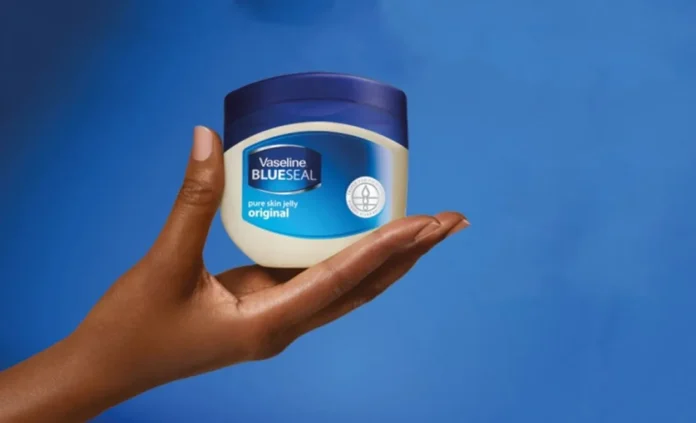Petroleum jelly, known for its common use in skin care, has sparked curiosity about its safety and potential health benefits. Dr. Prashant, a Consultant Pediatrician at Yatharth Super Specialty Hospital in Greater Noida, sheds light on this topic. He reveals whether consuming petroleum jelly, despite its widespread use for moisturizing the skin, is truly safe.
Petroleum jelly, often used as a skin protectant and moisturizer, has an interesting history. Robert Augustus Chesebrough, the founder of Vaseline, famously consumed a spoonful of petroleum jelly daily, claiming it had medicinal properties and could cure various ailments. This practice was part of Chesebrough’s belief in the “wonder jelly’s” health benefits, as noted by Britannica.
According to the Food and Drug Administration (FDA), petroleum jelly passes safety checks and complies with consumption guidelines. Despite its compliance with safety standards, Dr. Prashant warns against ingesting petroleum jelly.
“It is not safe to consume, even though it isn’t toxic,” Dr. Prashant explains. He points out that ingesting petroleum jelly can cause abdominal pain, nausea, and diarrhea. More severe complications, such as intestinal obstruction, can occur because petroleum jelly is thick, greasy, and hard to digest.
Petroleum jelly’s primary function is as a topical application. It creates a barrier on the skin, which helps lock in moisture and protect against environmental irritants. While it has beneficial uses externally, its internal consumption presents risks that outweigh any potential benefits.
Dr. Prashant emphasizes the lack of nutritional value in petroleum jelly. Unlike food products designed for ingestion, petroleum jelly does not provide essential nutrients or benefits when consumed. The substance’s greasy texture makes it difficult for the digestive system to process, which can lead to the aforementioned digestive issues.
Moreover, Dr. Prashant notes that the body’s inability to break down petroleum jelly properly can lead to a buildup in the intestines. This can result in severe health problems and may require medical intervention to resolve.
While some historical figures and anecdotes suggest benefits from consuming petroleum jelly, modern medical advice strongly discourages this practice. The risks associated with ingestion far outweigh any supposed benefits, making it clear that petroleum jelly should remain a topical product rather than a dietary supplement.
Dr. Prashant’s insights align with current medical understanding of petroleum jelly’s safety. It’s designed to serve as a skin protectant, not as a consumable product. The potential health risks associated with internal use, combined with its lack of nutritional benefits, underscore the importance of using petroleum jelly only as intended.
While petroleum jelly remains a valuable product for skin care, it is not safe or advisable to consume it. Despite historical anecdotes and individual claims, modern medical guidance and safety standards strongly advise against ingesting petroleum jelly. It is best to use this product solely for its intended external purposes to avoid unnecessary health risks.
Dr. Prashant also highlights that while petroleum jelly is effective in preventing skin dryness and protecting minor cuts or burns, its properties are not meant for internal use. The jelly’s composition, which includes mineral oils and waxes, is specifically formulated for external application. These ingredients create a protective layer that helps retain moisture and shield the skin from environmental damage. However, this formulation does not translate into internal benefits when ingested.
Another aspect to consider is the potential for allergic reactions or sensitivities. Though rare, some individuals may experience allergic reactions or skin sensitivities to petroleum jelly when applied topically. Consuming it could exacerbate these reactions or introduce new health concerns, particularly if the product contains impurities or additives not intended for ingestion.
Additionally, Dr. Prashant advises that reliance on petroleum jelly for purported internal health benefits could divert individuals from seeking effective and proven treatments. Modern medicine and nutrition provide a wide range of safe and effective options for maintaining health and addressing various ailments. Consuming non-food substances, especially those not intended for ingestion, can pose unnecessary risks and detract from more reliable health practices.
The historical anecdote of Robert Augustus Chesebrough consuming petroleum jelly highlights an era of experimentation with new products and remedies. However, contemporary medical standards and safety guidelines prioritize evidence-based practices and consumer safety. Today’s knowledge and understanding of health and wellness underscore the importance of adhering to proven and safe methods.
In light of Dr. Prashant’s advice, it is crucial for individuals to recognize the intended use of petroleum jelly and avoid consuming it. While it remains a popular and effective product for external skin care, its internal use does not offer benefits and may pose significant health risks. As with any health-related practice, it is essential to follow established guidelines and consult healthcare professionals for reliable and safe advice.
For those interested in improving their health or addressing specific medical concerns, exploring evidence-based treatments and consulting with healthcare providers can offer more effective and safer solutions. Maintaining awareness of product purposes and adhering to expert recommendations can help prevent unnecessary risks and ensure optimal health outcomes.
